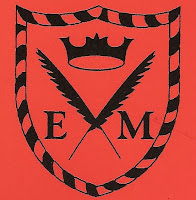 The name 'Corpus Christi' is Latin for 'the body of Christ'. Catholics all over the world celebrate this day as a public statement that the bread and wine served at Mass during Communion are the actual body and blood of Christ.
The name 'Corpus Christi' is Latin for 'the body of Christ'. Catholics all over the world celebrate this day as a public statement that the bread and wine served at Mass during Communion are the actual body and blood of Christ.
When Pope John Paul II was alive he led an annual Corpus Christi procession from St.Peter's Square in the Vatican to the streets of Rome. Many Catholic countries still celebrate Corpus Christi with processions and a real festival atmosphere.
Corpus Christi is marked by a service originally devised by Thomas Aquinas. It includes five great hymns, including Panis Angelicus.
Click to listen to: Pange Lingua sung in plainchant (3:25 mins)
History: The festival was inspired by the religious experience of St Juliana (1193-1258). This Belgian nun repeatedly dreamed of the Church under a full moon with a black spot. The dream's meaning was revealed to her in a vision by Christ. The Church's calendar of festivals was represented by the moon and the black spot was significant in that it meant that there was no festival to celebrate the holiest element of the Church, the Eucharist. As a result of St. Juliana's dream and vision, Corpus Christi was celebrated in England from 1318 onwards. Corpus Christi plays were staged to mark the occasion.
Such is the significance of Corpus Christi that there are colleges at the universities of Oxford and Cambridge and a major city in Texas, USA, that are named Corpus Christi.






No comments:
Post a Comment